The Best Fruits to Grow at Home
Interested in growing fruits at home, but not sure where to start? Try any of these fruiting plants that are common throughout the U.S.
Gardeners who grow in containers or have limited space can grow blueberries and raspberries now. This is thanks to the plant breeders, who in the last few years have introduced downsized versions of blueberries and raspberries.
Most people know of blueberry’s antioxidant attributes. They are also beautiful four-season shrubs. White to pinkish-white, bell-shaped flowers dot the branches in spring, followed by fruit in summer. In fall, the leaves turn a stunning blend of reds, purples, and oranges, and in winter, leafless branches retain their purple-red hues.
Peach Sorbet™, introduced by the BrazelBerry® brand, gets its name from the color of its fall foliage. It gets 2 -3 feet tall and wide, making it perfect for a 12 -15 inches tall and wide container. Even smaller is BrazelBerries®’ Jelly Bean™, which grows only 1 - 2 feet tall and wide. Peach Sorbet™ is hardy in USDA Zones 5–10; Jelly Bean™ in Zones 4–8.
Peach Sorbet™ and Jelly Bean™ (Vaccinium corymbosum) blueberries are self-pollinating, which means you don’t need another variety of blueberry to cross-pollinate for good fruit production.
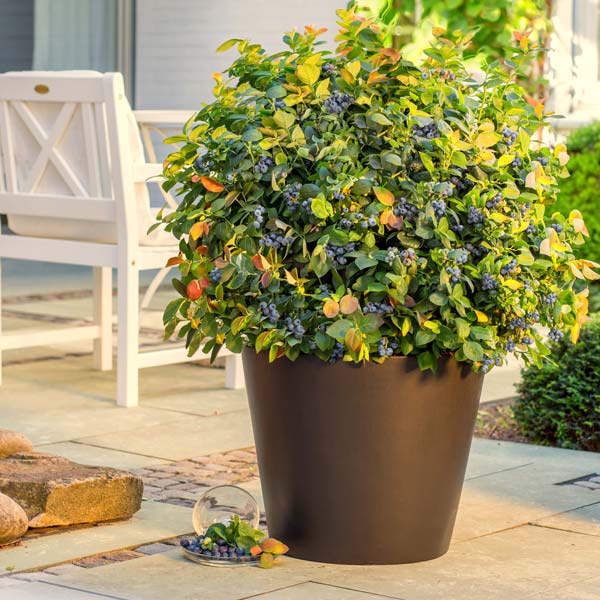
Peach Sorbet™ blueberries. Photo courtesy BrazelBerry®
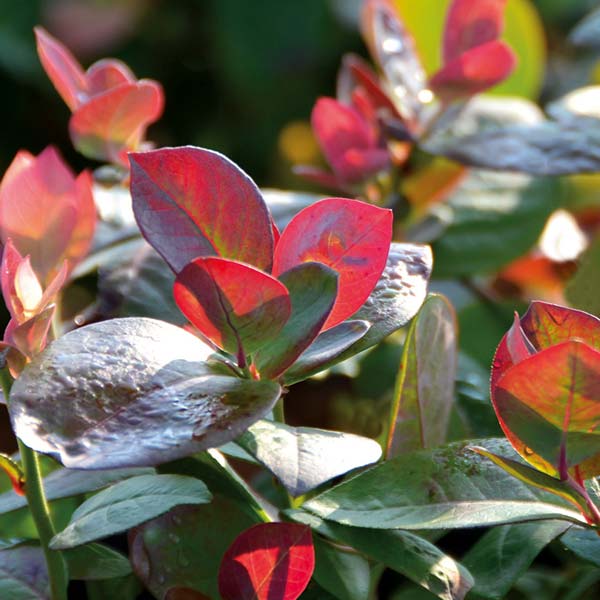
Fall/winter color of Peach Sorbet™ blueberry. Photo courtesy BrazelBerry®
Raspberry Shortcake™, a breeding breakthrough from BrazelBerry®, produces sweet red raspberries the first year it is planted in mid-summer. Bred for container growing, this thornless, self-pollinating raspberry (Rubus idaeus) gets about 3 feet tall. As it matures, Raspberry Shortcake™ grows more fruit-producing canes. Plant in an all-weather container, about 20 inches wide and deep.
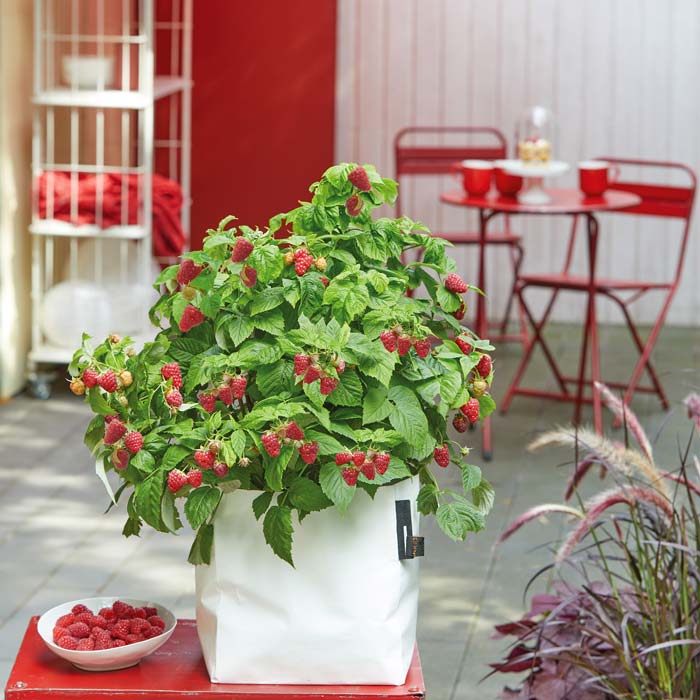
Raspberry Shortcake™. Photo courtesy BrazelBerry®
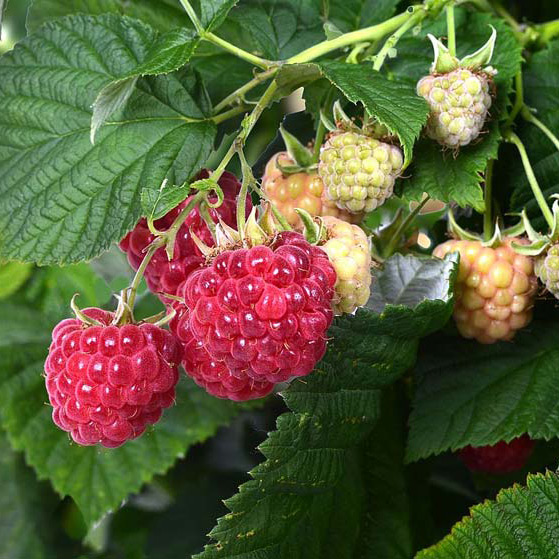
Rasberry Shortcake™ fruit. Photo courtesy BrazelBerry®
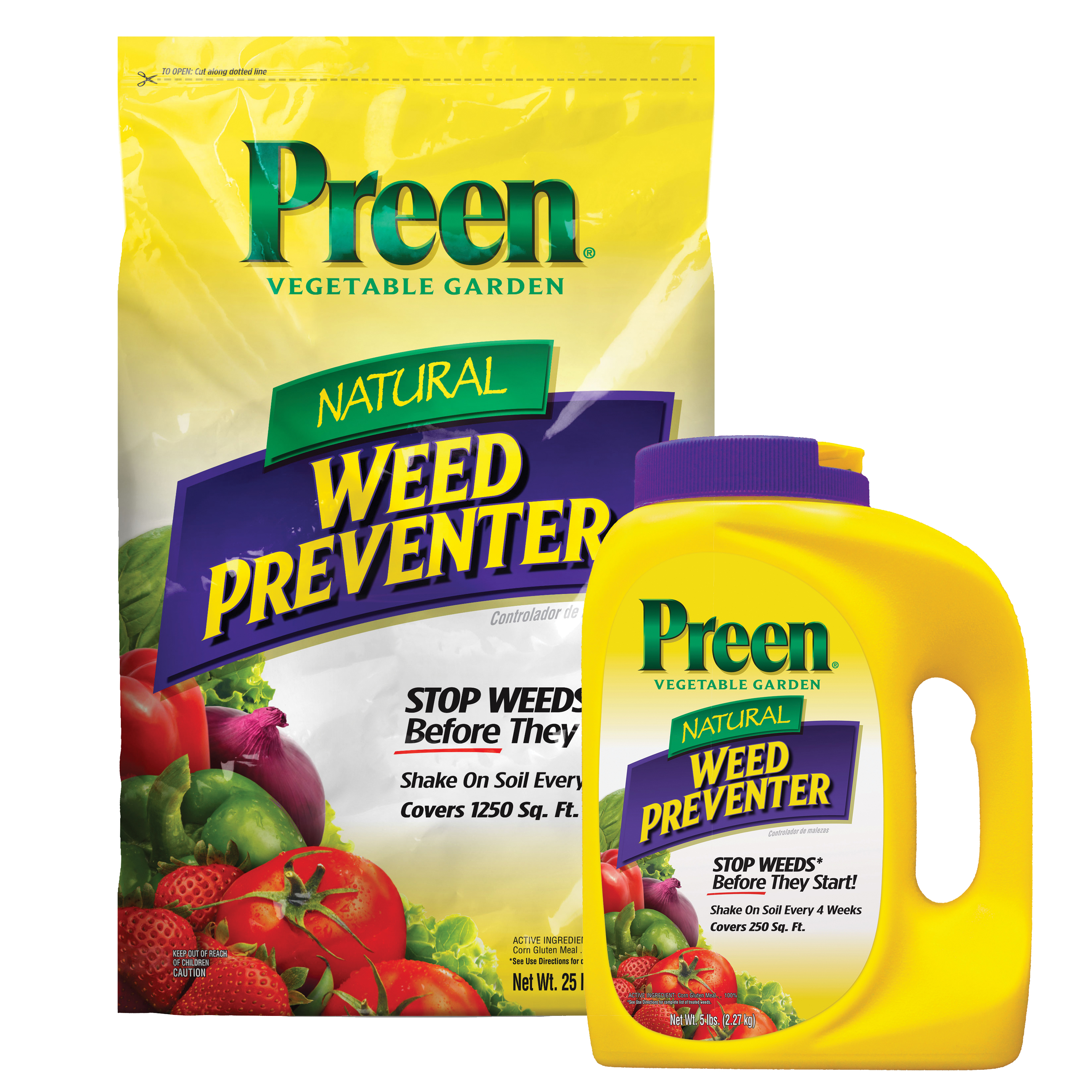
Preen Natural Vegetable Garden Weed Preventer